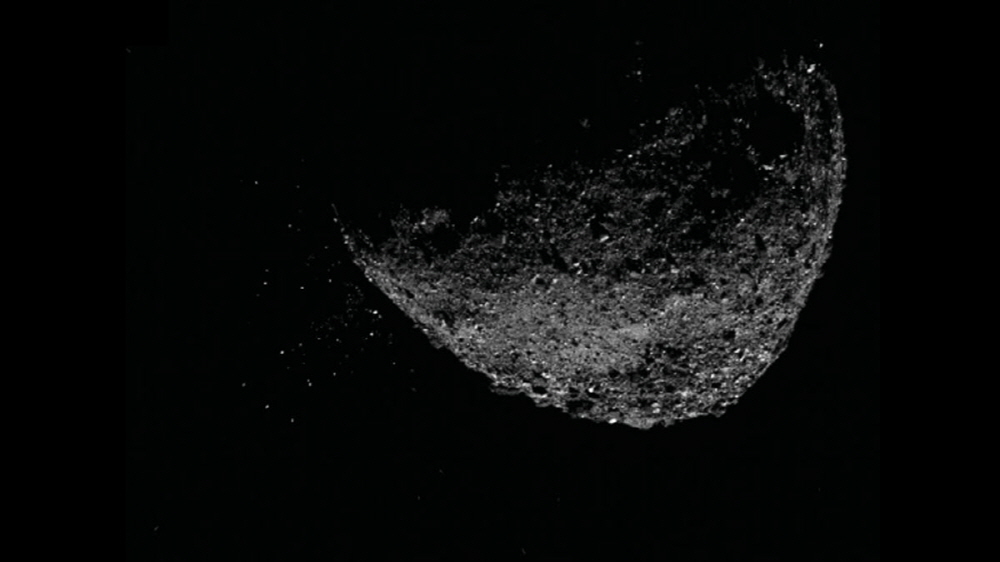
NASA’s asteroid probe OSIRIS-REx arrived at the asteroid Benu, about 490m in diameter, at the end of 2018. They are circling and observing this tiny asteroid and preparing to sample 2020.
However, Osiris-Rex has already discovered a surprising phenomenon. According to a paper published in Science on December 6th, earlier this year, the probe discovered that an asteroid was emitting particles. But I couldn’t find out what this particle was. In normal ice comets, etc., water vapor will erupt when approaching the sun, but few are active asteroids or erupting something. Benu believes that only 12 of the 800,000 asteroids discovered so far are likely to be active asteroids.
Osiris-Rex discovered that particles erupted at least 11 times over a period of 5 weeks from January 11 to February 18 at a speed of several centimeters per second to several meters per second. The NASA feared that the particle release would affect Osiris-Rex around Benu. However, the probability is very low. This is the result of calculating the particle trajectory. Most of the particles are released into outer space and orbit around Benu for months to years, some of which fall on the ground.
There are two hypotheses for the reason these particles erupt in Benu. One is the theory that a small material called a meteor collides with the Benu and releases particles, and the other is the thermal stress fracture phenomenon due to the change in surface temperature due to the day and night of the Benu rotating for 4.3 hours. Osiris-Rex is also observing the release of water vapor from Benu. This can also occur when exposed to cracks on the surface of the clay layer containing moisture. It can also be seen that the crack is related to the particle ejection.
NASA also plans to collect the emitted particles when sampling Osiris-Rex at Benu, planned for the summer of 2020. If you take it, he says, you will almost certainly understand the asteroid. NASA plans to collect at least 60g and up to 2kg samples from Benu and return them to Earth in September 2023.
For reference, the asteroid Benu approaches Earth eight times between 2169 and 2199, and it is also pointed out that it may collide with the Earth. The probability is 1 in 2,700, but it is a higher probability than any celestial object known to date. Related information can be found here .


















Add comment